About the Journal
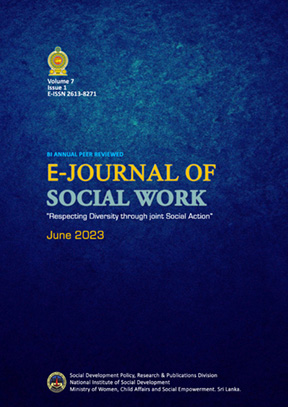 The E-Journal (Biannual) 2023 to be published under the Main theme of “Respecting Diversity Through Joint Social Action” and the articles will be published under the tri-language policy. The need of social work intervention to make solutions for social issues in Sri Lanka is highly recommended by the government. Therefore, it is practical to make awareness and the discourse, globally using technology. National Institute of Social Development is publishing E-Journal embarks on a mission to provide information on social issues and thereby disseminate the advanced knowledge of the Social Work Education.
The E-Journal (Biannual) 2023 to be published under the Main theme of “Respecting Diversity Through Joint Social Action” and the articles will be published under the tri-language policy. The need of social work intervention to make solutions for social issues in Sri Lanka is highly recommended by the government. Therefore, it is practical to make awareness and the discourse, globally using technology. National Institute of Social Development is publishing E-Journal embarks on a mission to provide information on social issues and thereby disseminate the advanced knowledge of the Social Work Education.
This journal aims to create a platform to accessing knowledge on Social Work and encourage the dissemination of new development in the Social Work Education with the help of Electronic Media and providing the awareness of Social Work Education through the E-learning.
Focus and Scope
The E-journal of Social Work publishes the research articles and Reviews of Social Work Research.
Frequency
Two issues would be published every year.
Published date
30th June 2023
Contents
Articles
Author: Chandima Jayasena / Abhishek ThakurPhD Scholar in Social Work, Department of Social Work, Pondicherry University / Assistant Professor, Department of Social Work, University of Delhi, Delhi, India.
Abstract:
This research paper aims to examine the relationship between disability and the field of social work. It highlights the significance of social workers in recognizing disability as a distinct diversity group and promoting inclusive interactions that go beyond traditional, charitable and welfare approaches. By utilizing the secondary sources of data, this paper identifies the core values and principles that underpin social work practice with the disabled, elucidates the application of a multicultural approach, and also explores the role and space of social workers in fostering the development and empowerment of persons with disabilities. Thematic analysis was used to construct the sub-themes for confirming the main theme of the study.Author: A.C. Mohamed Sabri / Manjula WijesekaraMSW, National Institute of Social Development, Sri Lanka / Senior Lecturer, School of Social Work, National Institute of Social Development, Sri Lanka.
Abstract:
Marital dissatisfaction affects people of all ages, races and cultural backgrounds and often leads to divorce and conflicts within the family. Both can have negative implications that last for years. Social workers and other allied professionals recognize pre-marital counselling work to ameliorate marital discord and improve marital satisfaction. The purpose of this study was to examine the impact of pre-marital counselling on sustainable family life. The family, either extended or nuclear is the most significant structure in the society. It is found that the concept of family is well maintained and nurtured by society throughout history, in the way of marriage system or other. The families are made by the bond of love of individuals and to provide love to the world. Unfortunately, this significant institution is under the threat of an alarming increase in divorce, family breakage, fear of marriage, discontent of marriage life and it led to suicide finally. Therefore, this study commenced to identify the causes of family discord and to safeguard the biggest social institution of family. Furthermore, it is also to find a proper solution in order to strengthen the family institution. Interviews of key informants, focus group discussions and questionnaires were used to collect data to support this research. Altogether, fifty individuals were selected for the study and were given a questionnaire to fill, further three Quazies were interviewed for information and several social activists and officers from some NGOs as the participants for focus group discussions. The collected data was analysed using qualitative mixed methods and findings were very much significant for the need of the Pre-Marital counselling.Author: Keerthi Jayawardane/Emeritus Professor Sarath Amarasinghe/Professor N.V.G.A. Hemantha KumaraDepartment of Sociology, University of Ruhuna, Matara, Sri Lanka / Department of Sociology, University of Ruhuna, Matara, Sri Lanka / Department of Sociology, University of Ruhuna, Matara, Sri Lanka
Abstract:
The elephant-human conflict was established as a well-known protracted social conflict in the society due to the introduction of modern large-scale development projects to develop rural infrastructure and not paying attention to the balancing factors of the natural environment. In particular, elephants' habitats and movement areas become human habitats, land parcels and clearing for commercial agriculture, invasion of their basic needs by human society can be identified as prominent issues of elephant-human conflict. Therefore, it can be confirmed that the conflict contains characteristics of homogeneity and heterogeneity and that the conflict has built the background necessary for socialization into a horizontal protracted social conflict. The main objective of the study is to identify the nature of the incomplete relationship between the political power structure model and elephant-human conflict. How the political power structure relationship has influenced the development of elephant-human conflict was used as the study problem. Mixed methodology was used under survey method for the study. A questionnaire was used to collect quantitative data and focus group discussions and retrospective studies were used to collect qualitative data. Stratified sampling was used under random sampling for the study and 50 respondents were selected in relation to the sample. Hambegamuwa and Hambegamuwa Colony Grama Niladhari Divisions belonging to Tanamalvila Divisional Secretariat Division of Monaragala District were used as the field of study. For this, two central and peripheral villages, which are different socially, economically and culturally, have been used for the study. Hambegamuwa was used as the central village while Hambegamuwa Colony used the peripheral village and Hambegamuwa was used as the central village because it was built from traditional residents. The migrated population resides in Hambegamuwa Colony and was used by the researcher as the peripheral village in the concept of resettlement. It can be revealed that the adaptation of the regional and rural political power structure model by the national political power structure model and the alignment of that adaptation with the peripheral and central factors of the conflict have provided the reasons for the development from a power political conflict to a protracted social conflict. Wildlife policies, sanctuary policies being at odds with the political system and the inter-relationship between inter-sectorial institutions and the non-operational and regulatory mechanism for this have become the reasons for the conflict to become a protracted social conflict. The conflict has created the characteristics of a protracted social conflict in the society based on the way the micro and macro political power structure process works. In particular, it was possible to find out how the political power structure model works in the rural level in the lease of land based on the new tax policy, becoming protected human habitations based on political goodwill. With the power structure model, it can be revealed that the micro and macro political power structure has provided the background factors to create a conflicting relationship between the needs of the human and animal community by purchasing land by large-scale entrepreneurs and private businessmen, giving it to forest-protected business agriculture through gazettes. These dilemmas seem to have set the stage for the creation of a hetero-nationalization from a political homogenization. Especially when considering the macro and central issues of the conflict, it was possible to identify the collapse of the security mechanism, domestic violence, and early marriages as visible factors of the conflict. Domestic violence, psychological isolation and frustration due to the breakdown of the protection mechanism in the family can be identified as social factors. By paying attention to the situational factors of the conflict, the characteristics of a prolonged social conflict can be identified and the ups and downs of the conflict with seasonal times can be identified. It can be concluded that the conflict has turned into a protracted social conflict due to the mobilization of the political power structure model in the rural society and the mobilization to disrupt the welfare process in the human household and the spatial background necessary for the creation of a fed-up group in the rural environment. Therefore, rather than preventing the conflict, the necessary measures should be prepared to lead to a resolution process through mediation work.
Key words: Elephant-human conflict, political power structure, protracted social conflict, large-scale development projects, homogenization
Author: T. Tharshan / S. JeevasuthanLecturer, School of Social Work, National Institute of Social Development, Sri Lanka / Senior Lecturer, Department of Sociology, University of Jaffna, Sri Lanka.
Abstract:
The aim of the study was to identify the psychological, social and economic challenges faced by WHHs in the post-war context and the role of social work, to propose social work intervention to promote sustainable livelihood activities. The Karachchi is one of the DS Divisions that was by the armed conflict in the Northern Province. It’s seen that the WHHs encounter many psychological, social and economic challenges in their livelihood initiatives. Although many have worked hard to create sustainable livelihood, not all have been successful due to ambiguity and lack of effort by the WHHs, lack of commitment and inefficiency in service delivery by government and non-government organizations. Sustainable livelihood refers to the lifestyle adopted to lead a satisfactory standard of living that includes adequate mechanisms to generate income for the future generation of the WHHs concerned. A qualitative method was used systematic stratified sampling. Respondents were selected in 42 Grama Niladari Divisions in Karachchi Divisional Secretariat and 20% villages were selected through systematic stratified sampling method and from them 61 respondents were selected based on Purposive Sample. The results show that 85.25% of WHHs face psychological challenges in improving livelihood. Also, 67.22% of WHHs face social challenges, physical illnesses, childcare, lack of family support. Social challenges include social exclusion, misperception of society, lashing out, bullying and jealousy. 87% faced economic challenges and 13% did not face economic challenges. Social work interventions by government and non-governmental organizations are found to be inadequate in improving livelihoods of women and those who have achieved subsistence livelihoods have improved due to self-effort and dedication. Therefore, more research on social work interventions can be done to encourage sustainable livelihood of WHHs.
Key words: Women Headed Households, Sustainable livelihood, Empowerment
Author: M.U. NouferkhanthDepartment of Education and Childcare, Faculty of Arts and Culture, Eastern University, Sri Lanka, Sri Lanka.
Abstract:
In the contemporary world, "Education" is the essential aspect. It is also the basement for the improvements of society in various manners. The educational activities of students should be to reveal best outcomes and results. But the lack of interrelation between the parents and children causes to the non-improvement on children’s education. The occupational movement of parents is the main course for the lack of interrelation of parents with children, lack of continuous attendance to school, having fights with classmates in classrooms, disobeying the teachers, use of alcohol and school dropouts. Regardingly, five schools in the Eravur Education Zone where senior intermediate students are learning have been selected on the basis of objective sample for the study. five principals, 50 teachers,105 students, 25 parents on the rate of 1:5 per 05 parents for school have been selected as the research sample. As per the research findings, due to the occupation of parents and the lack of interrelation between parents and children. Children are subjected to the problems of psychology, health, social, discipline and difficultly in learning and these aspects are heavily affected the education of children. Recommendation are presented as increasing the contribution of parents in children's education to make it effectively, making awareness to clarify the worth of time to the parents which the parents are giving for their children and educating the parents that their engagement must motivate their children's education.
Advisors
Advisors
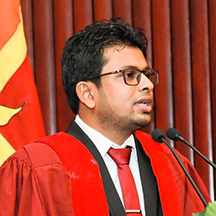 |
Dr. Raveendra WithanachchiDirector General (Acting) National Institute of Social DevelopmentThis email address is being protected from spambots. You need JavaScript enabled to view it. |
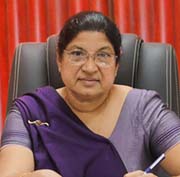 |
Mrs. Shamini AttanayakaAdditional Director General (Academic) National Institute of Social DevelopmentThis email address is being protected from spambots. You need JavaScript enabled to view it. |
Volume Reviewers
Volume Reviewers
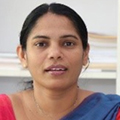 |
Prof. Wasantha Subasinghe |
 |
Prof. Neranji Wijewardena |
 |
Prof. M. Mahees |
 |
Dr. S. Jeewasuthan |
 |
Dr. Lakshika Liyanage |
 |
Mr. M.S.M. Asmiyas Director Social Development Policy, Research and Publications Division,National Institute of Social Development This email address is being protected from spambots. You need JavaScript enabled to view it. |
Previous Volumes
Previous Volumes
Founders
Founders
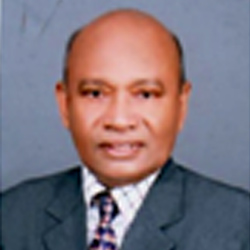 |
Professor Daya EdirisingheProfessor Emeritus of Philosophy Department of Philosophy,University of Kelaniya, Sri Lanka. This email address is being protected from spambots. You need JavaScript enabled to view it. |
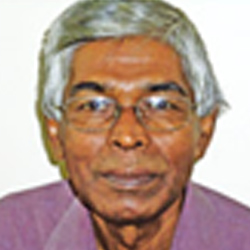 |
Professor B.A. Tennyson PereraProfessor Emeritus of Sociology and Anthropology Department of Sociology and Anthropology,University of Sri Jayewardenepura, Sri Lanka. |
 |
Professor Emeritus Sarath AmarasingheSenior Professor of Sociology, Department of Sociology,University of Ruhuna, Sri Lanka. This email address is being protected from spambots. You need JavaScript enabled to view it. |
 |
Mr. A.H.I. Sanjeewa (Founding E-Journal Editor) Research Assistant Social Development Policy, Research and Publications DivisionNational Institute of Social Development This email address is being protected from spambots. You need JavaScript enabled to view it. |
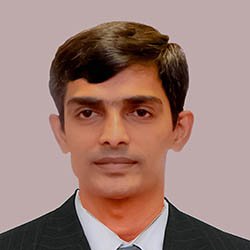 |
Mr. D.K.I. Wijerathna (Technical Writer)Computer Programmer National Institute of Social DevelopmentThis email address is being protected from spambots. You need JavaScript enabled to view it. |








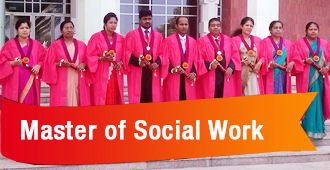

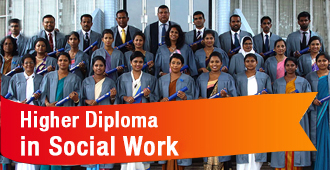
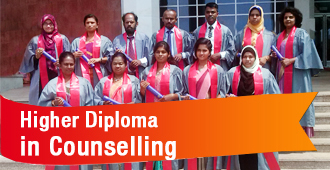

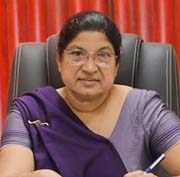

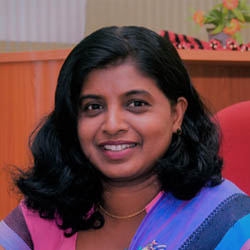
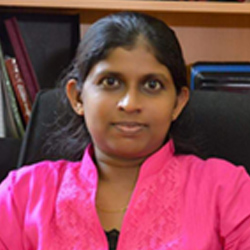

 Editorial Policies
Editorial Policies Guidelines for Submission of Articles
Guidelines for Submission of Articles Copyright Notice
Copyright Notice